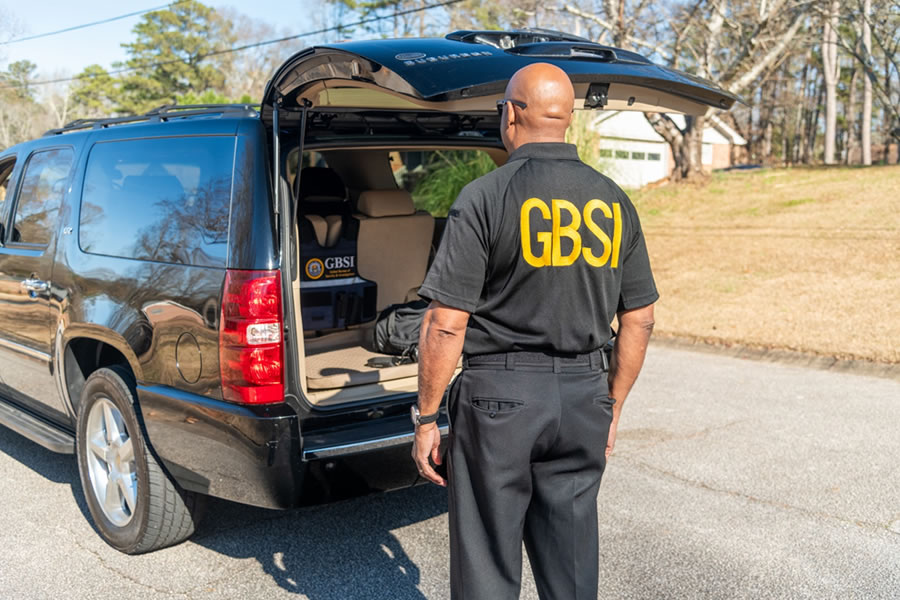Minutes
Free Consultation
Call Us Now!
404-876-7273Minutes
Call Us Now!
404-876-7273
In the U.S., the role of a private investigator is shaped by specific regulations, methods, and client needs that often look very different abroad. The Global Bureau of Security & Investigations has seen it all when it comes to the differences in private investigation work across borders. Keep reading to find out what sets U.S. private investigators apart from their international counterparts and why these differences matter.
In the U.S., investigators operate under strict regulations, though these can vary by state. Most states require professional investigators to be licensed, meaning they need to have a certain amount of education, training, and experience before they can start working. Clients need to trust that their investigator knows the law inside and out. Investigators in the U.S. have to be careful to stay within the bounds of the law while gathering information. For example, they can’t wiretap phones without a warrant, and they definitely can’t trespass on private property. Everything from tracking someone’s movements to gathering digital evidence needs to be done legally, or the evidence could be tossed out if it’s ever needed in court. Despite these restrictions, private investigators in the U.S. have a lot of tools at their disposal. They can access a wealth of public records, use advanced surveillance technology, and work with law enforcement in some cases. Investigators also work closely with their network. Building connections with sources, informants, and other professionals is critical for investigators to get the job done.
What happens when you take private investigation outside of the U.S.? The job itself doesn’t change all that much; whether you’re looking into a cheating spouse or conducting a background check, the tasks are often similar. However, the rules and tools available can vary drastically from one country to another. In many European countries, privacy laws are stricter than in the U.S. The European Union’s General Data Protection Regulation, or GDPR, has made it extremely difficult for private investigators to collect personal data. Investigators in countries like Germany or France often have to jump through more legal hoops than their U.S. counterparts, making it harder to gather evidence, especially when it comes to online data or surveillance footage. On the flip side, there are countries where the rules are more relaxed. In some parts of Asia or Africa, private investigators might have more leeway to conduct their investigations, with fewer regulations around surveillance or data collection. However, a lack of regulations can also mean a lack of legal recourse if something goes wrong. If an investigator crosses a line or violates someone’s rights, the client could be left in a tricky situation without the legal protections that would exist in the U.S. So, while the barriers to investigation might be lower, the risks are often higher.
Cultural norms play a massive role in how investigators operate in different countries. In the U.S., investigations are handled clearly, with strict procedures in place to make sure that everything stays above board. But in other countries, culture can shape the investigation in unique ways. In countries with strong familial or tribal connections, like in parts of the Middle East or Africa, private investigators may need to tread carefully around cultural sensitivities. Investigators often need to take a much more personal approach and use discretion and diplomacy to gather information without crossing social boundaries. What might be considered straightforward in the U.S., like questioning neighbors or local contacts, could be seen as intrusive or offensive in other parts of the world. For investigators in these regions, success can depend as much on their cultural awareness as on their investigative skills. In contrast, in some Western European countries, investigators might find that the culture encourages privacy to the point where it’s harder to gather information. People might be more hesitant to talk, or there could be a greater stigma around hiring a private investigator. Understanding the cultural landscape is important for investigators to avoid stepping on toes and still get the job done.
One of the biggest differences between private investigators in the U.S. and those abroad is access to technology and resources. In the U.S., investigators have access to an incredible range of high-tech tools, from GPS trackers to forensic software that can recover deleted data from computers and smartphones. They also have access to extensive databases that hold everything from criminal records to property deeds. These resources allow U.S. private investigators to track down information quickly and efficiently. However, in other countries, investigators may not have the same technological advantages. In less developed regions, investigators might rely more on traditional methods, like in-person interviews or on-the-ground surveillance, simply because they don’t have access to the same digital tools. That’s not to say they’re less effective, far from it. In many cases, these investigators are incredibly resourceful, using whatever they have at their disposal to get results. However, the tools available can make a big difference in how an investigation is conducted and how quickly it can be wrapped up. Of course, there are countries with cutting-edge technology that rivals or even surpasses what’s available in the U.S. In nations like Japan or South Korea, where technology is highly advanced, investigators have access to digital tools that make gathering information a lot easier. However, even in these countries, there are strict regulations in place about how that technology can be used, especially when it comes to personal privacy.
At the Global Bureau of Security & Investigations, we have the experience and global reach to handle investigations anywhere while ensuring that local laws and customs are always respected. Whether you need help in the U.S. or abroad, we’ve got you covered. If you’re ready to get started, give us a call today.
Read what our happy clients say about our professional and trusted security services.